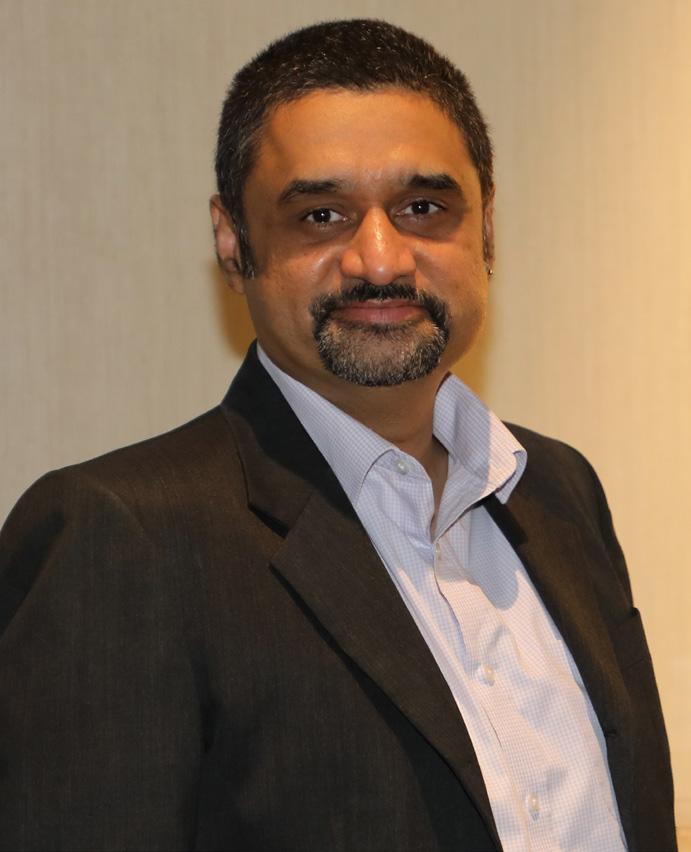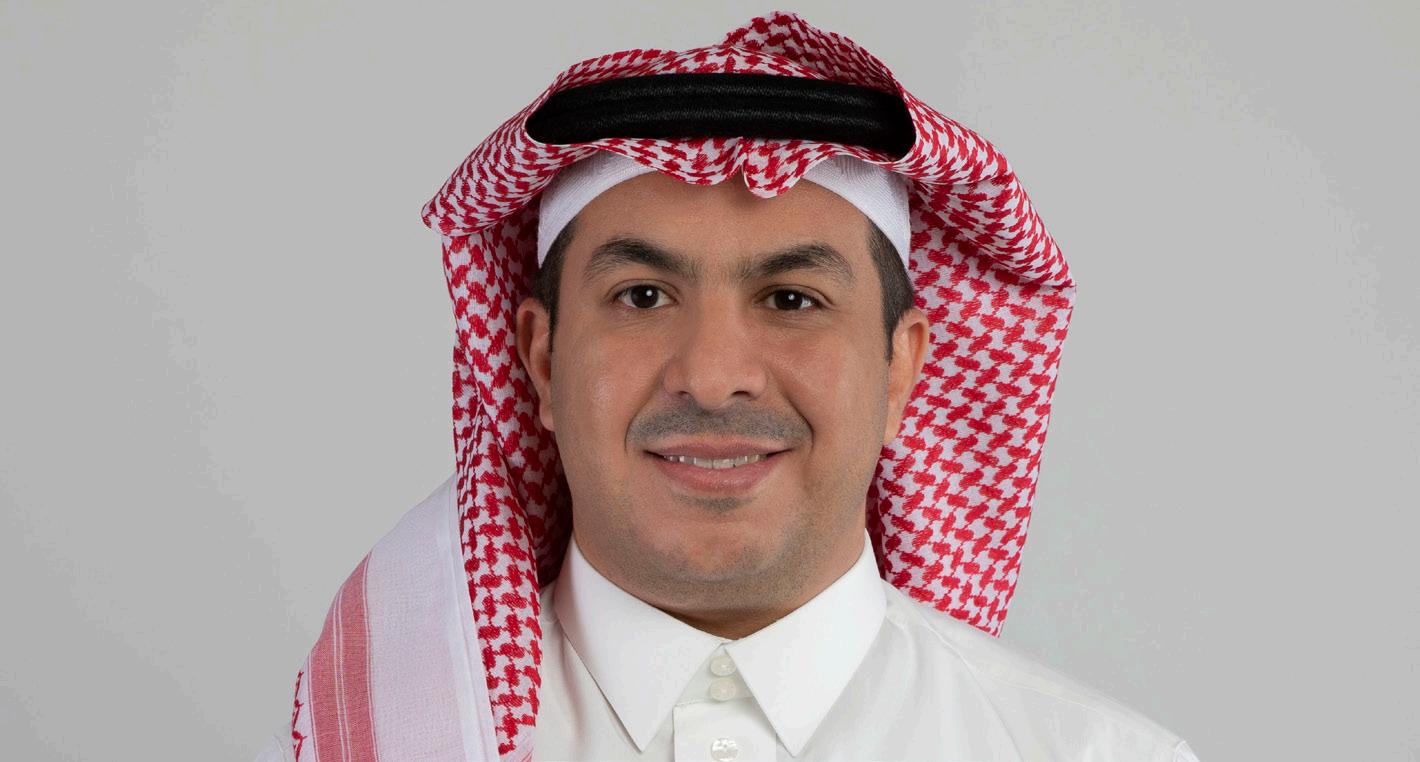
15 minute read
Trackimo to Establish Local
Nokia and Zain KSA Smarten Up Saudi Homes and Offices with 5G-Powered FWA and Wi-Fi 6
Nokia has announced an expansion of its strategic 5G partnership with Zain KSA to rollout 60,000 FastMile 5G Gateway 3.1 with eSIM across Saudi Arabia over the next 12 months. The gateways will deliver stronger signal, better connectivity and ultra-high data speeds to every corner of homes and offices in the Kingdom. The move allows Zain KSA to support smart home and office adoption in the country with enhanced connectivity for smart devices through 5G and Wi-Fi 6, which altogether guarantees an improved customer experience.
Advertisement
Nokia FastMile 5G gateways take advantage of the company’s self-optimizing mesh Wi-Fi 6 solution for real time Wi-Fi performance optimization. The gateways ensure a much quicker and easier account setup by using the latest eSIM technology that allows users to avoid the process of acquiring and installing a physical SIM card. This deployment is the first time eSIM has been used in a 5G fixed wireless access solution.
Eng. AbdulRahman bin Hamad AlMufadda, Chief Technology Officer at Zain KSA, said:“Rolling out our new 5G fixed wireless access routers comes in line with our digital transformation and 5G expansion strategy reiterating our role in serving the Kingdom’s society. Our mission from the start was to strengthen the 5G experience in the Kingdom into two levels: horizontally, concerned with spreading the 5G network across the largest possible geographical scale. Vertically, through 5G fixed wireless access solutions to enable homes and offices with the best and most reliable broadband experience available. In alignment with Saudi Vision 2030 we will continue to invest further to enable the digital sector and the national digital transformation namely through: cloud computing, IoT, and AI; while simultaneously aiming to become the digital service provider of choice in the Kingdom.”
He added, “We are delighted to launch the 5G fixed wireless access devices, to ensure that homes and businesses can enjoy the fastest and most reliable broadband experience. As such, Zain KSA becomes the pioneering operator in the latest generation of telco services to deploy Nokia FastMile 5G Gateways which is another milestone added in our reliable and secure 5G network to revolutionize the way people live and work.”
Sandra Motley, President of Fixed Networks Division at Nokia, said: “We are happy to support Zain KSA connect more people, and revolutionize the way people live and work in the Kingdom. Zain KSA is joining the leading operators around the world, in providing the 5G fixed wireless access to deliver a gigabit experience to consumers and businesses alike. The combination of FastMile 5G Gateways and self-optimizing mesh Wi-Fi 6 technology means that Zain KSA is delivering a new and unmatched 5G experience to everyone, at every corner in homes and offices.”
Trackimo to Establish Local Presence in the UAE
Trackimo, an American IoT solution provider that develops the world’s most compact and cost-effective tracking devices are in the midst of expanding their operations in the region after successful Gitex participation. Trackimo works with global mobile operators such as Verizon, Vodafone, Telcel, among several others that have already rolled-out Trackimo’s personal safety and asset tracking products for their customers. The company plans to build similar relationships with Etisalat, Du, Batelco, and other operators in the region and replicate its international business model.
The company specializes in developing trackers that work seamlessly indoors and outdoors, over a worldwide cloud-IoT system. Trackimo’s smart GPS (Global Positioning System), GSM, Wi-Fi trackers are purposed for personal, professional, industrial, and commercial use. The most successful Trackimo consumer IoT product launched recently was the Vodafone Curve Tracker, which was recognized by the Financial Times as ‘the best tracker ever’.
Shai Bar-lavi, CEO, Trackimo, said, “We had a very successful GITEX and we would like to thank and really appreciate the efforts of the organizers for putting up such a flawless trade-show during this global pandemic. The trade visitors that we received at our booth were serious investors and buyers and as a result enabled us to connect with several potential distributors and partners from not only the Middle East but also the African region. We are currently evaluating the distributors and very soon will be establishing our footprint in Dubai, which will serve as our Middle Eastern headquarters."
From monitoring the safety of loved ones to tracking expensive professional gear to industrial and commercial integrations, Trackimo addresses a broad spectrum of tracking and monitoring needs. Tracking people, pets, luggage, shipments, drones, motorcycles, boats, cars, or remote-controlled objects, and many other sectors can immensely benefit from Trackimo’s seamless tracking technology.
Digital Transformation Pressures Drive Big Spike in Global Microservices Adoption
The sixth annual survey of NGINX’s extensive open-source user community found that the proportion of applications being built with microservices jumped from 40% to 60% in the past year. At the same time, more than 50% of the 600 respondents indicated that they were using microservices in some or all apps.
The survey also revealed that containers are twice as popular as other modern application technologies. Moreover, 34% of respondents said that they were using containers in their production environment, compared to serverless (15%) and service discovery (7%). NGINX’s research resonates with Gartner’s recent prediction that 75% of global organizations will be running containerized applications in production environments by 2022, up from less than 30% today.
“We’re seeing a big shift from monolithic to microservices-based apps. More than ever before, organisations are looking to build platforms with greater resilience and faster deployment capabilities. Without question, there’s a growing confidence worldwide that microservices-based apps can help improve the user experience, which is an increasingly critical success factor for all organisations,” said Dor Zakai, EMEA Senior Director for Solutions Engineering, NGINX at F5.
A further indication of this shift is that 14% of respondents plan to embrace service meshes in the next year, a 50% jump from the number currently doing so. As it stands, public cloud remains the most popular infrastructure option for modern app tools (55% of respondents), followed by Infrastructure-as-a-Service (23%), serverless computing (13%) and private Platform-as-a-Service (11%). Organisations are also steadily moving away from on-premises load balancers, with 24% now using software-based load balancers and 19% sticking with hardware. NGINX’s community survey responses indicate that the latter is set to drop to 15% in the next year.
Lenovo Data Center Group Delivers New Data Management Solutions
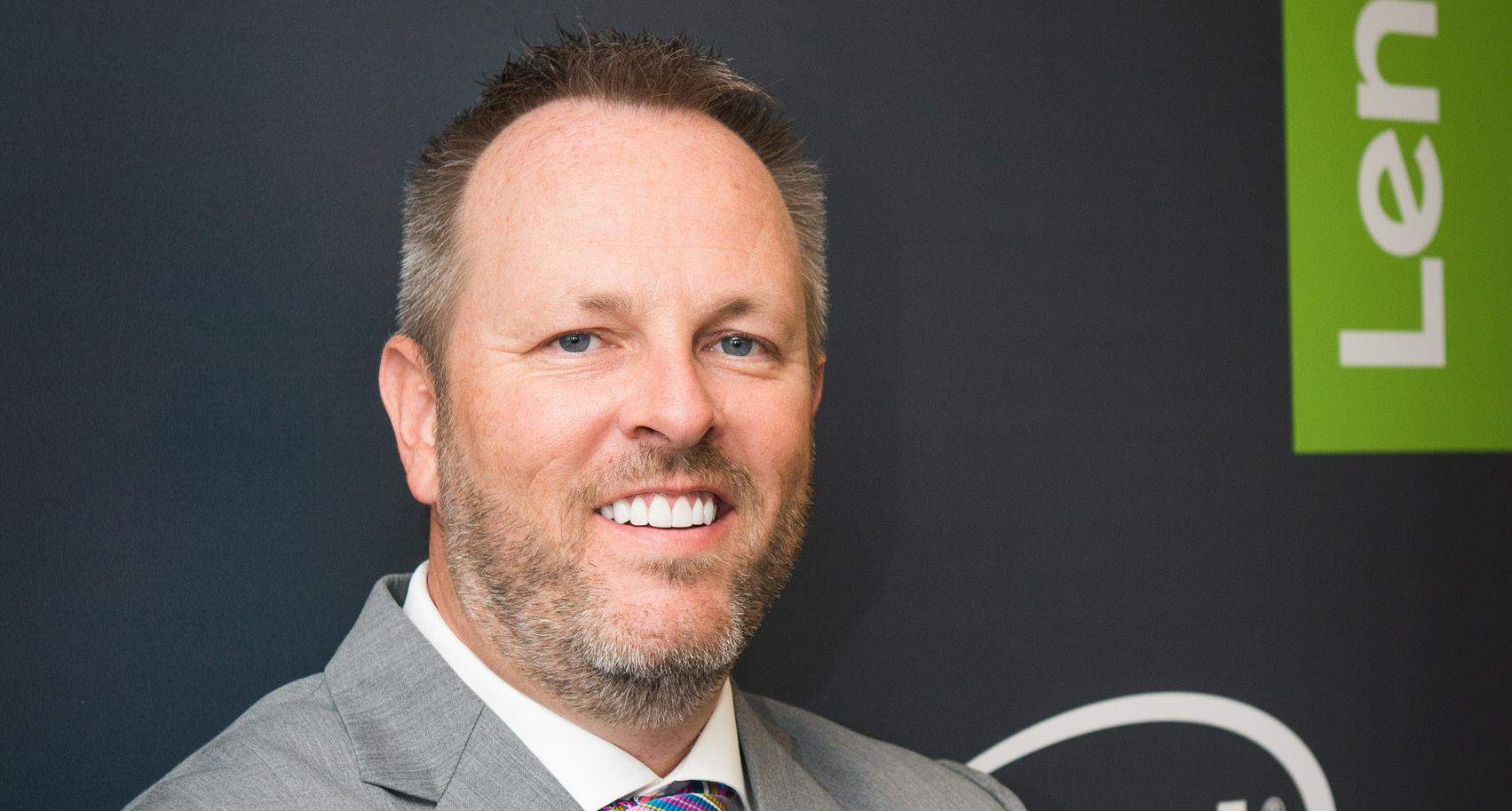
Lenovo Data Center Group (DCG) recently announced new end-to-end data management solutions allowing customers of all sizes to harness data more securely and efficiently, from edge to core to cloud, with a single set of tools and capabilities for a smarter way forward. “Customers continue to face challenges implementing a cohesive data management system to analyze and process data more efficiently,” said Stuart McRae, Executive Director and General Manager, Storage, Lenovo Data Center Group. “Lenovo’s unique state-ofthe-art data management architecture, in combination with the industry’s most reliable2 ThinkSystem servers, enables customers to accelerate Analytics and AI within a single platform.”
The new Lenovo ThinkSystem DM5100F brings high-performance, low-latency allNVMe storage at an affordable price point, enabling customers of all sizes to enhance analytics and AI deployments, while accelerating applications’ access to data. The Lenovo DM Series storage systems now include new S3 Object support, to create a next generation unified data management platform. This platform allows customers to manage and analyze all data types (block, file and object) within a single storage platform, accelerating the processing of data analytics while reducing infrastructure costs. These enhancements create expanded data protection capabilities, with transparent failover and management of object storage natively.
Additionally, with Lenovo DM Series storage, customers can add cold-data tiering from hard drives to the cloud, or replicate data to the cloud. This enables an economical multi-cloud strategy for storage, reducing the overall cost of data management. In the UAE, the government is investing heavily in the latest AI technologies and tools to advance efficiency, agility, and government performance by 2031. The nation launched the Building a Responsible AI Nation (B.R.A.I.N) initiative, which leverages AI with the aim of enhancing services, insights and analytics, and national security.
“Data-driven decision-making is a key tool that can help enterprises fuel progress and advance their overall operations” said Dr Chris Cooper, Director and General Manager, Lenovo Data Centre Group MEA. “By leveraging Lenovo’s unified hybrid cloud data management system, customers can gain insights, crucial information and AI-backed predictions to enhance their services and maintain their growth on an upward trajectory."
Jolera, a multinational service provider, recently worked with Lenovo to build out its back-end IT infrastructure. Jolera chose Lenovo DM Series and DE Series to build out its new offering, in combination with Lenovo ThinkSystem SR630 servers connected to storage arrays. “One of our first achievements was boosting the deduplication ratio of our storage solution from 3:1 to 4:1 by simply using the built-in tools in ThinkSystem,” said José Martins, Vice President, European Sales and Operations at Jolera Inc. “Without question, this improvement will help us contain our storage spend, and we will continue to optimize our data center with tools and guidance from Lenovo.”
Ooredoo Group and Ericsson Sign Five-Year, Strategic 5G Agreement
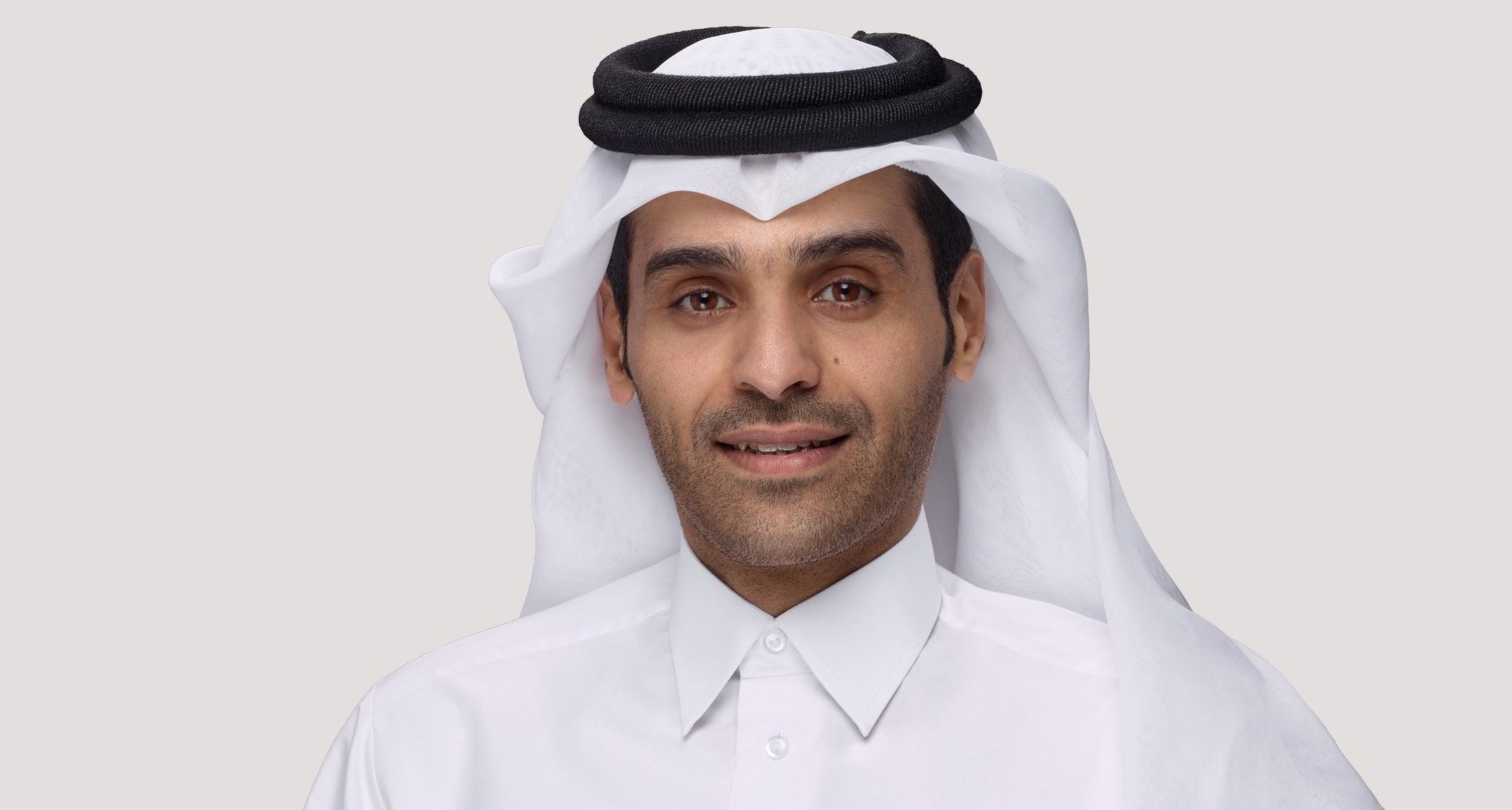
Ooredoo Group and Ericsson have signed a global frame agreement for the supply of 5G radio, core and transport products and solutions, as well as related implementation and integration services for all 10 of the Group’s operating companies in Qatar, Indonesia, Algeria, Iraq, Kuwait, Oman, Palestine, Tunisia, Myanmar and Maldives.
The agreement covers Ericsson Radio System, including MINI-LINK 6000 products that are capable of the 10 Gbps, Ericsson Cloud Core, Cloud Infrastructure and Ericsson Cloud Communication solutions. This will enable end-to-end 5G support to digitally transform and modernize Ooredoo’s existing mobile networks across its operating companies. These solution will also significantly shorten time-to-market for new services and improve Ooredoo's network performance to meet the growing expectations of consumers and enterprises. Ericsson Radio System is already deployed and live in several of Ooredoo’s operating companies. In Ooredoo Qatar’s network, Ericsson Radio System, using the 4G+5G Ericsson Spectrum Sharing solution, has facilitated a fast nationwide 5G coverage. Furthermore, in preparation of Ooredoo Qatar’s network to host multiple global sporting events, Ericsson is deploying its latest 5G mid-band Massive MIMO radios to create a unique digital experience for millions of sports fans in the stadiums, at home, or on-the-go. Sheikh Mohammed Bin Abdulla Al Thani, Deputy Group Chief Executive Officer, Ooredoo Group says: “Today’s agreement represents another step in the longstanding and successful partnership between Ericsson and Ooredoo, which enables our company to continue network expansion, enhancement and digital transformation. Ericsson is bringing state-of-the-art global technologies to the countries we operate in, which enables us to provide the latest digital solutions for communities to enjoy the best of the internet, including connecting the most remote areas, supporting start-ups digitally and providing immersive experiences for sports fans at upcoming mega-sporting events."
With a turnkey responsibility, Ericsson will deliver a comprehensive portfolio of telecom services. Under the agreement, Ericsson will provide hardware and software expansions of the core network, radio network and transmission network, as well as enhanced mobile multimedia functionality for new
service offerings. Fredrik Jejdling, Executive Vice President and Head of Business Area Networks, at Ericsson says: “5G as a platform for innovation will speed up Ooredoo’s journey towards digital transformation. It will fuel new use cases that cater to evolving consumer and enterprise demands. It is with great pride that we strengthen our collaboration as we continue supporting Ooredoo’s ambition of delivering high-performing networks and superior user experience."
Ericsson's expertise in network design, deployment and integration as well as software upgrades will support Ooredoo’s transition to advanced multimedia services. Under the agreement, Ericsson will also provide support and maintenance services.
EU Countries Amass €171 Million in GDPR Fines in 2020
Data acquired from the GDPR Fines 2020 Report by Finbold.com indicates that a total of €171.3 million fines have been issued against European countries in 2020 alone. The fines were issued between January 1st, 2020, and January 1st, 2021.
The GDPR Fines 2020 Report reveals that Italy accounts for the highest fines at €58.16 million of the total fines from 34 violations. The United Kingdom ranks second with €43.9 million in fines from only three violations. The two countries cumulatively account for 59.5% of all the EU GDPR fines. Germany is third at €37.39 million from three major violations.
Sweden’s 15 violations attracted €14.27 million in fines, while Spain closes the top five categories with €8 million in fines arising from 128 incidents. In 2020, a total of 299 fines were registered in the EU.
On specific incidents, Germany’s H&M Hennes & Mauritz online Shop AB & Co. KG was fined €35,25 million for data protection violation. This is the biggest single fine on a specific data breach incident in 2020. Italy’s TIM, a telecommunication operator, received the second-highest fines at €27,8 million. British Airways is third after amassing fines of €22,04 million.
The fine comes after over two years since the General Data Protection Regulation (GDPR) was implemented in the EU and EEA back in May 25, 2018. Finbold.com chief editor Oliver Scott commented, “Despite campaigns to have organizations enact better measures to protect consumer data, the violations recorded across the EU remain significant with the law coming into place in 2018. It will be interesting to see if organizations will take up extra responsibility to prevent breaches in 2021. However, stakes remain high for companies to avoid risking regulatory action for breaches and protecting reputation alongside legal actions.”
Hytera PoC Solutions Enhance Safety and Protection for Private Security Industry
Hytera PoC solutions are designed to help the private security industry ensure the safety and security of buildings, valuables and people by patrolling, securing and monitoring premises, guarding cash or other valuables in transit, and protecting VIPs. Safety is the top priority. Security guards must react quickly to threats and perform their jobs effectively without compromising the safety of property or personnel. Therefore, instant and efficient communication is essential.
Many security guards work at fixed locations such as transport hubs, power stations, offices, education centers, hospitals, shopping malls, retail stores and residential buildings. For these security guards, dedicated Professional Mobile Radio (PMR) networks or Push-to-Talk over Cellular (PoC) solutions provide reliable, instant group communications to ensure a rapid response to any threat.
For organizations with limited budgets that cannot always afford to deploy a dedicated PMR network, PoC solutions provide a cost-effective alternative without the need to invest in any network infrastructure, for this is already provided by mobile network operators. To ensure the safety of the working environment, it is often necessary to real-time monitor and record the on-site situation.
However, fixed CCTV coverage often has blind areas, so mobile surveillance patrols by security guards are needed to fill the gaps. PoC radios and body-worn cameras can capture what happened during an incident and provide video and audio evidence afterwards. For security guards working in mobile roles such as the close protection of VIPs or the transportation of valuables, the main difficulty is ensuring reliable, instant communications with team members and the office while in transit.
PoC overcomes this problem by providing wide area coverage and seamless group communications over 3G/4G. PoC also provides dispatchers with greater situational awareness in emergencies, for 4G supports video streaming from the scene of the incident.
Accelerated Digitalization Among Key Trends to Unlock up to $2.6 Trillion in Oil and Gas Sector
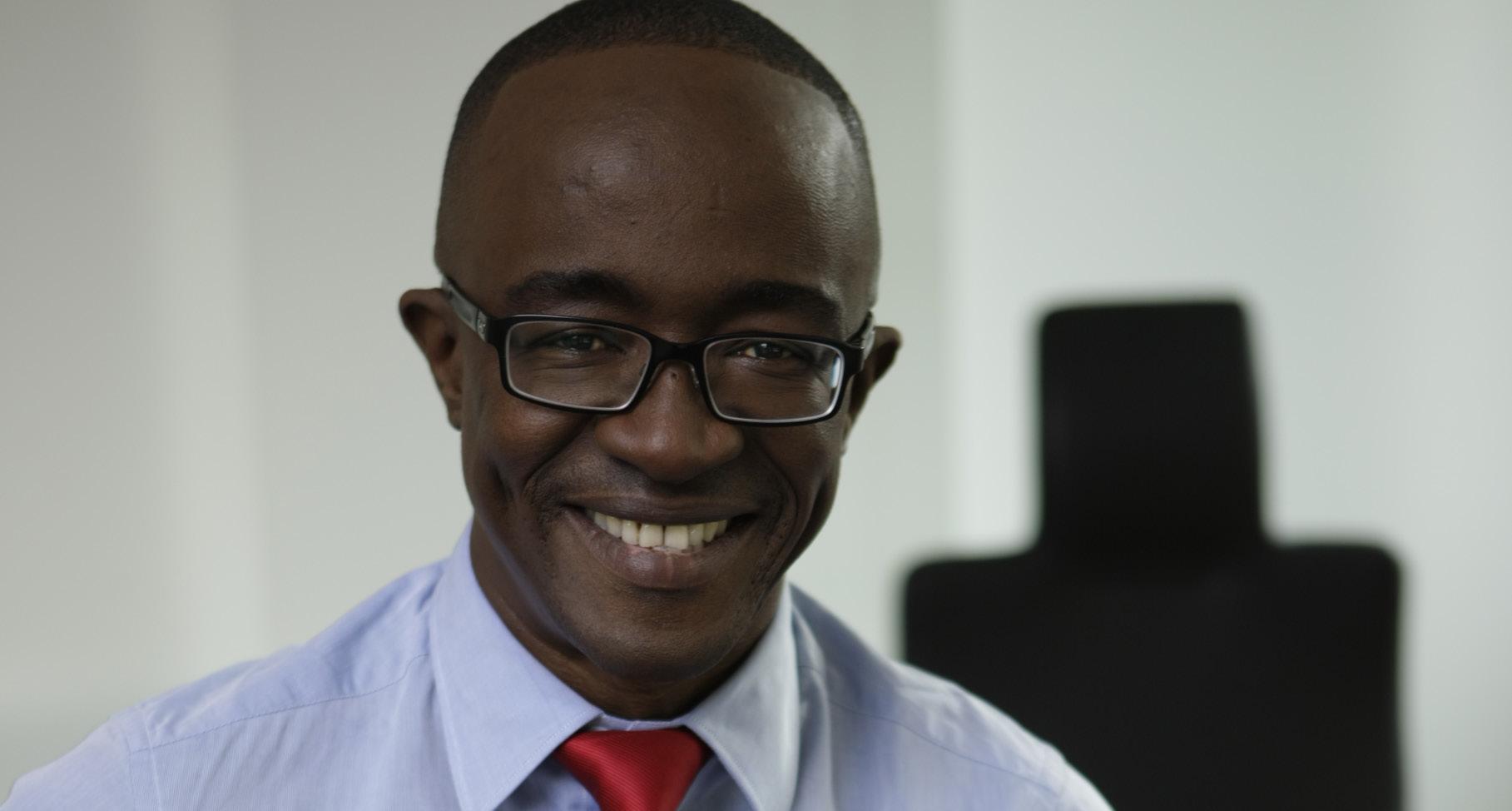
DHL Global Forwarding has released a whitepaper examining the key trends impacting the oil and gas (O&G) industry in the Middle East and Africa. According to the leading air, ocean and road freight specialist, digitalization will continue to play a significant role in transforming the industry, potentially unlocking $1.6 trillion to $2.6 trillion by 2025. This is achieved as companies leverage digitalization to improve margins, safety standards, as well as reduce emissions and water consumption.
The whitepaper predicts that owing to pandemic-induced slowdowns in travel, global oil demand will not reach pre-COVID-19 levels before the end of 2021. O&G companies in the Middle East and Africa region (MEA) need to take bold decisions to quickly reposition themselves, including redefining partnerships across the supply value chain, building resilience and going digital. For example, drones and autonomous robots can potentially reduce drilling and completion costs by 20% in deep-water areas and 25% in inspection and maintenance of assets.
Amadou Diallo, CEO, DHL Global Forwarding Middle East and Africa, who is also Executive Sponsor for the oil and energy sector at Deutsche Post DHL (DPDHL) Group commented, “The energy sector is grappling with multiple challenges due to the pandemic but it is not all doom and gloom however. Whilst it is more critical than ever to ensure the smooth completion of projects, it is equally pertinent that energy companies leverage technology to offer smarter, simplified and greener solutions. To that end, DHL has implemented best-in-class logistics solutions for leading energy companies, such as TOTAL, to collectively tackle technological, digital and climate challenges.”
The DHL whitepaper notes that increased investment in downstream projects will generate more value per barrel of oil through production of value-added specialty chemicals and plastics. Over half of the global oil demand growth by 2025 is expected to come from the petrochemical industry – and this is evident in the region where national oil companies are already partnering with key players across key demand markets; for instance Saudi Aramco’s non-binding deal for 20% stake in Reliance’s crude oil-to-chemical (COTC) operations.
The whitepaper also highlights an accelerated transition towards a green economy. In 2019, 72% of all new electricity generation globally came from renewable energy sources, and the industry expects that nearly half (45%) of the global energy demand growth until 2030 would be sourced from renewable energy. Keeping with the global shift to low-carbon energy, O&G companies are transforming from volume to value business models. Policy makers globally are also shifting gears toward decarbonizing the economy.
Diallo concluded, “To stay relevant in a dynamic market, energy companies have to adapt and embrace new business models, which will allow them not only to participate but also to lead the global transition towards green energy. At DHL, we continue to work closely with our customers to optimize their complex supply chains and manage logistics costs better, so energy companies can focus on their core activities.”









